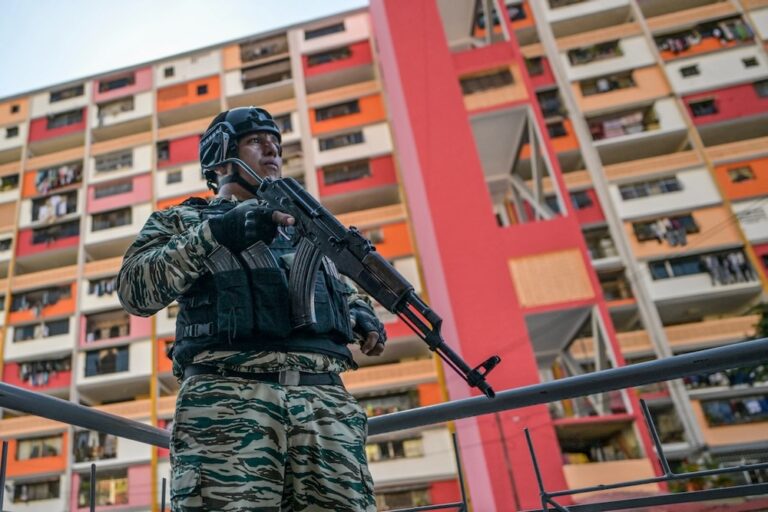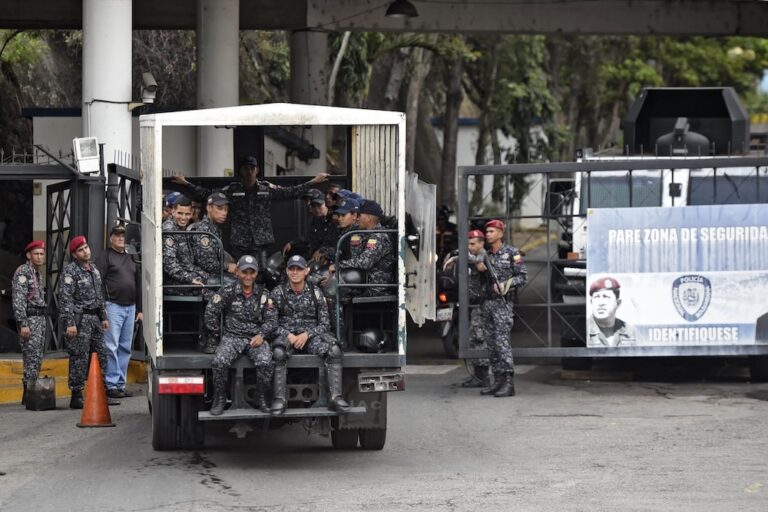Aitor Saez, a Spanish correspondent working for Deutsche Welle, was sent back to Colombia on the night of January 22, 2017, after immigration authorities said the Spanish journalist did not comply with the necessary requirements to enter the country.
Aitor Saez, a Spanish correspondent working for Deutsche Welle (DW) German Radiobroadcasting Services, was sent back to Colombia on the night of January 22, 2017, after immigration authorities said the Spanish journalist did not comply with the necessary requirements to enter the country. The reporter came to cover news of demonstrations that had been called for the following day by opposition groups.
Saez reported on Twitter that National Bolivarian Police officers (PNB) detained him for about seven hours at the international airport of Maiquetía Simón Bolívar in Vargas state.
According to his account, the reporter requested and waited for more than an hour for anybody to come and document the irregularity, in light of the absence and silence of the authorities of the Administrative Identification Migration and Foreigners’ Services (SAIME). “The plane that shall return me to Bogotá arrives on platform 23, the same platform where today a new attack against freedom of information was committed”, Saez tweeted, calling the act an attack against freedom of information.
The reporter, who came from Bogotá, Colombia, had travelled five times to Venezuela in 2016 to cover news of events of public interest.
The National Syndicate of Press Workers (SNTP) learned about the letter of non-admission issued by the immigration office at Maiquetía Airport which notified as follows: “As per articles 7 and 12 foreseen in the Law on Entrance for Foreigners, THIS PERSON HAS NOT COMPLIED WITH THE REQUISITES TO ENTER THE COUNTRY”.
Articles 7 and 12 of the March 24, 2004 Venezuelan Law on Entrance For Foreigners and Immigration states that foreigners who wish to enter the country must have a valid passport with a stamped visa or permit authorizing the person’s entry or stay in Venezuelan territory. However, the letter gives no details as to the exact irregularity in the documents held by the Spanish correspondent that were the reason for him not being allowed to enter.
As per the provisions on the web page of the Ministry of communication and information (Minci), accreditation procedures for foreign correspondents and special envoys must be carried out at consular offices in Venezuela in each country. This work was previously carried out through the Ministry of communication and information.
Official authorities including the president of the republic, Nicolás Maduro, have threatened in the past to file legal and administrative
lawsuits against correspondents and foreign media for reporting on events taking place in Venezuela linked to corruption, public healthcare, insecurity, and the scarcity or lack of food, goods and services.
Saez was coming to Venezuela to cover demonstrations called by opposition groups on January 23rd towards the regional offices of the CNE, to demand that the elections authorities set the elections time frame.
From January 1st to December 31st, 2016, IPYS Venezuela has tallied 23 limitations for foreign correspondents who came with the purpose of covering news of public interest in the country. Six foreign media reporter crews were retained at the Simón Bolívar international airport, in Maiquetía, Vargas state, and were prohibited from entering the country. The journalists visited Venezuela from August 29 to 31, 2016, to cover news of the mobilizations called by pro-official and opposition political party sectors on Thursday September 1st, 2016.
This alert on freedom of expression represents an abusive use of the state’s power linked to the deportation of a Spanish correspondent by immigration authorities. IPYS Venezuela urges the Venezuelan government to respect the work of reporting by correspondents and foreign press employees, and to guarantee their personal safety during protests, as per the international standards on freedom of expression.
Number 13 of the OAS Declaration of Principles on Freedom of Expression states that the media have the right to do their job independently and any direct or indirect pressure aimed at quashing or silencing the communicators’ act of informing is incompatible with freedom of expression.


